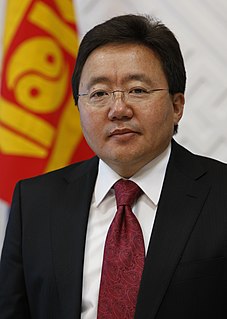A Quote by Vijay Prashad
In the early period of Left struggles, in the late nineteenth and early twentieth century, there were many different trajectories for the struggle, whether you call it 'syndicalism' or 'anarchism' or, at the time, 'social democracy', eventually 'Communism', these were different theories of struggle. But all of them shared a basic understanding that the people...experience exploitation, they experience oppression, but they're not prepared to rise up.
Related Quotes
Writers in the nineteenth century - people like George Eliot and Flaubert - were accustomed to addressing particular communities with which they shared not only linguistic meanings but also an experience and history. Those communities have progressively split in the twentieth century, and grown more heterogeneous, and writers emerging from minority communities have found themselves addressing audiences closer to their experience and history - a phenomenon derided by conservative white men as identity politics and multiculturalism in the arts.
The use of the word royalty, as fee to a proprietor for the exploitation of a work or property, derives from the period when the sovereign assumed title to all wealth of the realm. It was the struggle for freedom from these encroachments of the state that chiefly marked the Nineteenth Century, and established everywhere constitutional regimes of limited authority. In the Twentieth Century, however, we have witnessed a gradual and almost unrestricted movement back to state authoritarianism, primarily in the economic sphere, accompanied by the spread of state monopoly and intervention.
Given that the nineteenth century was the century of Socialism, of Liberalism, and of Democracy, it does not necessarily follow that the twentieth century must also be a century of Socialism, Liberalism and Democracy: political doctrines pass, but humanity remains, and it may rather be expected that this will be a century of authority ... a century of Fascism. For if the nineteenth century was a century of individualism it may be expected that this will be the century of collectivism and hence the century of the State.
The idea that Christianity is basically a religion of moral improvement... has its roots in the liberal Protestantism of the late nineteenth century and early twentieth century... It is this stereotype which continues to have influence today... But then came the First World War... What had gone wrong was that the idea of sin had been abandoned by liberal Christianity as some kind of unnecessary hangover from an earlier and less enlightened period in Christian history.
The working classes in every country only learn to fight in the course of their struggles...Social democracy...is only the advance guard of the proletariat, a small piece of the total working masses; blood from their blood, and flesh from their flesh. Social democracy seeks and finds the ways, and particular slogans, of the workers' struggle only in the course of the development of this struggle, and gains directions for the way forward through this struggle alone.
Yoga is a product of Eastern thought. A further complication is that the early Yoga teachers were both Indian and Hindu. So from the late 1800's and early 1900's the Yoga teachers who came across were as interested in Hinduism as in Yoga. Often what we were being taught was a mixture of two different systems.
Sometimes people have sympathized with me because long years of my life were spent in jail and in exile. Well, those years ... were a mixed experience. I hated them because they separated me from the dearest thing in the world-the struggle of my people for rebirth. At the same time, they were a blessing because I had what is so rare in this world-the opportunity of thinking about basic issues, the opportunity of examining afresh the beliefs I held.








































